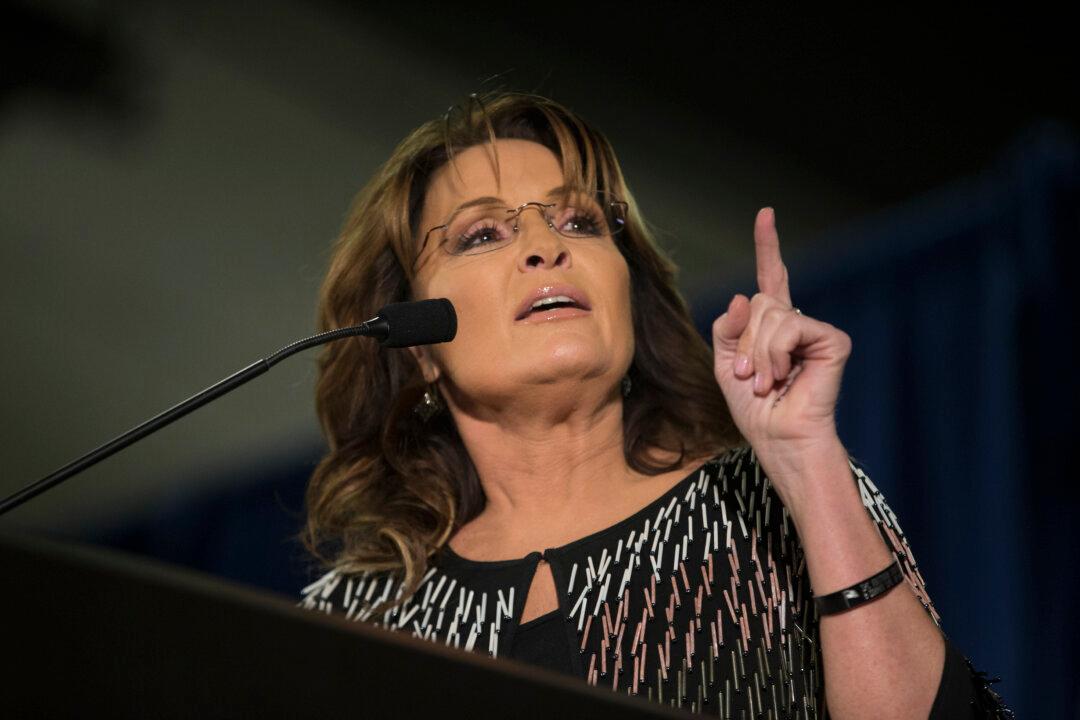A jury will consider whether The New York Times defamed former Alaska Gov. Sarah Palin in an editorial that claimed there was a “clear” link between a map and a mass shooting in Tucson, Arizona.
U.S. District Court Judge Jed Rakoff ruled on Aug. 28 that there was sufficient evidence to allow “a rational finder of fact” to find actual malice by James Bennet, who helmed the paper’s op-ed section in 2017, when the editorial was written.





